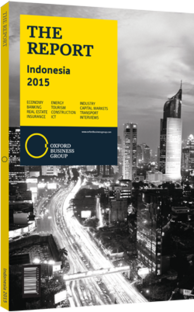Franky Sibarani, Chairman, Indonesia Investment Coordinating Board (BKPM): Interview

Interview: Franky Sibarani
It is argued that new investments should help position Indonesia as a production base, rather than an expansion market. Will this be a focus for BKPM?
FRANKY SIBARANI: BKPM has built a strong relationship with the relevant ministries to formulate policies as far as investment climate issues are concerned, including labour, electricity and dispute settlement, among others. Even on incentive issues, BKPM has been given a more significant role in coordinative decision-making where a particular business field is granted the incentive. In this way, BKPM can contribute to the process of channelling investment to the priority sectors.
The One Stop Service (OSS) will play a key role in this matter. We provide a simple and integrated licensing programme in order to facilitate investors who have any interest in investment projects. We began by prioritising the One Window Integrated Licensing programme, which hopefully will improve the investment climate.
With 21 ministries delegating their authority in issuing a number of investment licenses to BKPM, our goal of making Indonesia a production base in Asia, and perhaps the world, will be more achievable. We keep increasing efforts in easing the investment licensing process from the moment investors arrive in Indonesia to the time of the realisation of their investment.
President Joko Widodo has set out to transform Indonesia into a maritime power in the region. What investment opportunities might this bring?
SIBARANI: The purpose of President Widodo’s plan to transform Indonesia into a maritime power is to strengthen our country’s identity as a “maritime nation” and to become what he calls a “global maritime nexus”.
We have much to do to achieve this vision. Our major ports are still inefficient. We have a small, underequipped and underperforming navy, and our public ferries are relatively unsafe. The upgrading of our ports and other maritime infrastructure depends on whether we can attract large pools of investment, due to the government’s limited budget and insufficient resources to make the necessary infrastructure improvements. In this aspect, the results from our efforts are promising, as investments in the maritime sector reached $39.8bn in the first quarter of 2015.
We have initiated plans to build more seaports and other infrastructure to facilitate investment. We plan to advance maritime transport through a maritime interconnection project that involves constructing 24 seaports across the country and will cost $55bn. Furthermore, our strategic investment plan for 2015-19 includes sectors such as shipping, ship building, seaport, cold storage and maritime ICT.
We also have two existing special economic zones (SEZs) in Bitung and Morotai which offer projects in fisheries processing industries for fresh fish processing and canning. An additional SEZ in Sorong is expected to be established by 2019.
What is the message that BKPM would like to convey to potential investors as they look for investment opportunities in the region?
SIBARANI: In order to achieve our 7% average growth target, national investment needs to grow by 10.2% per annum between 2015 and 2019. Meanwhile, our target for total direct investment during this period is $293bn, a figure that represents a 220% increase on the previous five-year period.
Indonesia is an attractive investment destination, as we offer many opportunities in each region. We will focus more on regions outside of Java in order to develop the “hidden gems” of Indonesia that have yet to be explored.
To achieve our goals, our main promotion focus will be on the seven investment priorities. These are: power generation, labour-intensive industry, import-substitution industry, export-oriented industry, downstream industry of natural resources, maritime, and tourism.
There is a vast array of investment opportunities waiting to be explored. We will assist investors in any way that will allow their investment plans to be realised through faster, simpler and more transparent means.
You have reached the limit of premium articles you can view for free.
Choose from the options below to purchase print or digital editions of our Reports. You can also purchase a website subscription giving you unlimited access to all of our Reports online for 12 months.
If you have already purchased this Report or have a website subscription, please login to continue.

